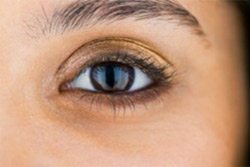Posted March 26, 2015 in Cosmetic Surgery Articles
5 minute read

Blepharoplasty, or eyelid surgery, can give you a refreshed and more youthful look. But, as with most types of surgery, some downtime and recovery is needed after the procedure.
In general, people take between one and two weeks off from work after eyelid surgery, depending on how complicated the procedure is.
During that time, your activities will most likely be limited, so that your eyes are able to fully heal from the surgery.
Immediately After Surgery
As with many surgeries, you can expect things to look worse before they look better. Immediately after your surgery, your eyes might be red and puffier than they were before the procedure. Your eyes may also tear up easily and you might have some double vision, at least initially.
To help keep bruising and swelling to a minimum, your surgeon will most likely recommend that you put cold compresses or ice packs on the eyes. It’s a good idea to prep your cold compresses in advance, so that they’re at the ready for you when you return home from the procedure. It’s also a good idea to stock up on eye drops or artificial tears before your procedure and to make sure you have pain relievers available, in case you have any discomfort in the eye area. Usually, pain or discomfort is minimal, but you might want to have some medicine available just in case.
What to Do During Recovery
Your options for activities during your recovery after eyelid surgery might be a bit more limited than your options after another type of surgery. Since your eyes might become tired easily, your surgeon might advise against watching a lot of TV or trying to read a book or magazine. Instead, listening to audiobooks or podcasts might be a more comfortable way to spend your time. You may also have to limit your time checking your email, using your computer or playing on your smartphone during those first few days.
Activities that require a lot of physical exertion, such as working out, are also off limits during your recovery period. Your surgeon might recommend taking walks on a regular basis, but anything that involves bending and lifting should be avoided for several weeks.
Tips for Swelling
Along with giving your eyes time to heal and for the swelling to decrease, there are a few things you can do to help improve it. Keeping the head elevated in the days and weeks after your surgery is generally recommended, to keep fluid from collecting near the eyes. That means sitting upright and keeping your head propped up when you sleep. Typically, sleeping on your back with your head supported by several pillows is recommended.
Your diet after surgery also influences the amount of swelling you experience. Keeping your body hydrated will help you avoid fluid retention, as will avoiding a lot of salty foods. Try to avoid salty snacks and highly processed foods in the weeks right after surgery. Eating a diet of whole foods that are low in sodium will not only help you avoid excess swelling. It will also help you heal more quickly, since those foods are high in the vitamins and nutrients your body needs to recuperate.
What About Makeup
If you love eye makeup, one question you might have after surgery is how long until you can start wearing it again? The answer depends on the type of makeup you wear. It’s usually a good idea to wait about a week before you start trying to conceal any bruising, for example. Waiting gives your incisions time to heal and helps you avoid accidentally tattooing your eye area with your makeup.
If you’re a fan of glittery or shimmering eye shadows, you might have to wait even longer before you can start using those products again. The tiny particles of glitter can irritate your still-healing eyes if worn too soon after your procedure.
Protecting Your Eyes
Protecting your eyes not only helps the healing process go more smoothly. It can also help prolong the results of your surgery. In most cases, your surgeon will recommend avoiding sun exposure after your eyelid surgery. The sun’s rays can cause discoloration and make scarring worse as the incisions heal.
Even after your eyes have healed, shielding them from the sun is a must. Use an eye cream with an SPF of at least 30 every day. Sunglasses with UV protection are also a good idea, especially on very bright days.
Eyelid surgery can give you a more youthful and brighter look, but it’s important to understand what the recovery process involves. In the Washington, DC area, Dr. George Bitar can answer any additional questions you have about the surgery and give you a better idea of what to expect during and after it. To schedule a consultation with Dr. Bitar call (703) 206-0506 today.
